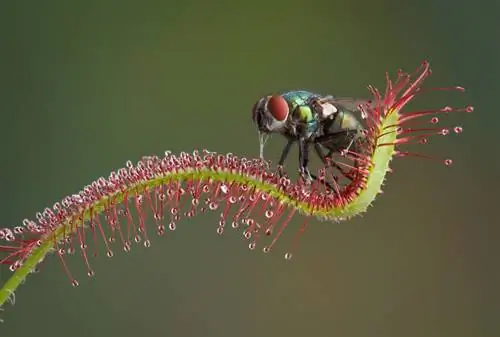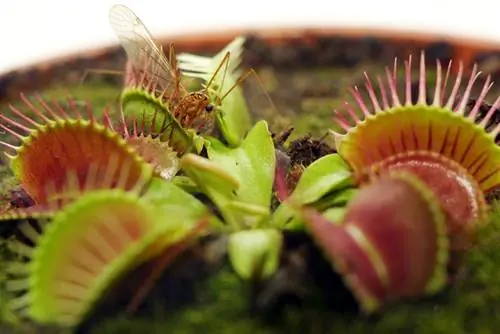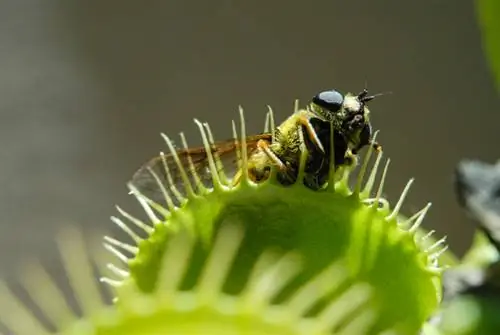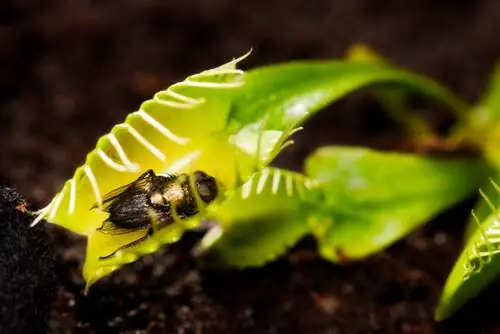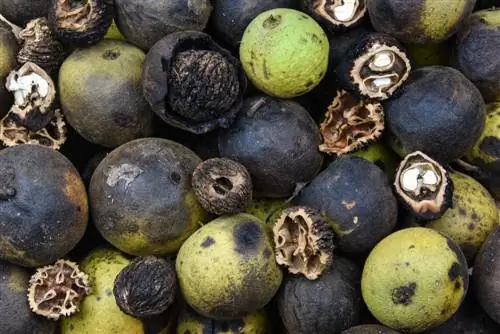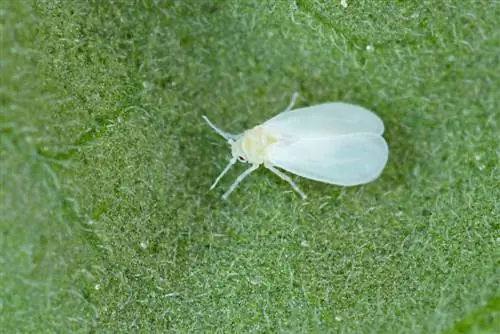- Author admin leonars@hobbygardeners.com.
- Public 2023-12-16 16:46.
- Last modified 2025-01-23 11:20.
Especially in summer, flies become a real nuisance in the living room. Many plant lovers consider caring for a carnivorous plant because they feed on small insects. But do carnivores also help against flies?
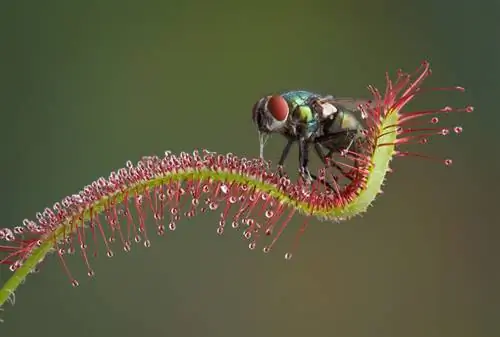
Can carnivorous plants be used against flies?
Carnivorous plants can help against smaller insects such as fruit flies, but they are usually not effective against larger house flies. Pitcher and pitcher plants are best suited for larger flies, but these are difficult to care for and require excellent site conditions.
Carnivorous plants catch small insects
Carnivorous plants or carnivores certainly live up to their name. They use sticky leaves in large cans or funnels to catch mosquitoes and small insects that settle on the leaves or get caught in the trapping devices.
However, carnivores only digest a few insects at a time, and only if they are not too big for the traps or sticky leaves.
For fruit flies, butterwort, sundew and the like can reduce an infestation. However, they are powerless against normal houseflies. These are usually much too big.
Use Venus fly traps against flies?
The Venus flytrap is one of the most famous carnivorous plants. It has folding traps that are very conspicuous and that strike quickly when insects sit on them. It is therefore often recommended for combating flies.
In practice, this rarely works. The prey animals must not be larger than a third of the size of the trap. If the prey is too large, the trap will snap shut, but the digestion process takes a very long time for large animals. The trap often dies afterwards because it has absorbed too many nutrients. Venus flytraps open a maximum of seven times before they die.
Use large carnivorous plants to combat flies?
There are a few species of carnivores whose traps are large enough to trap flies. These include the pitcher plant, if its pitchers are large enough, and the pitcher plant with its funnel-shaped traps.
These carnivorous plants not only need a perfect location, they also require a lot of care.
Pitcher plants also only help against flies if there is liquid in the pitchers. This is not water, but a secretion that the Nepenthes uses to digest the insects caught in the jug.
Tip
Although it may be irritating, never feed carnivorous plants dead flies or other lifeless insects. The plants only react to live prey. Dead prey rots in the traps.

